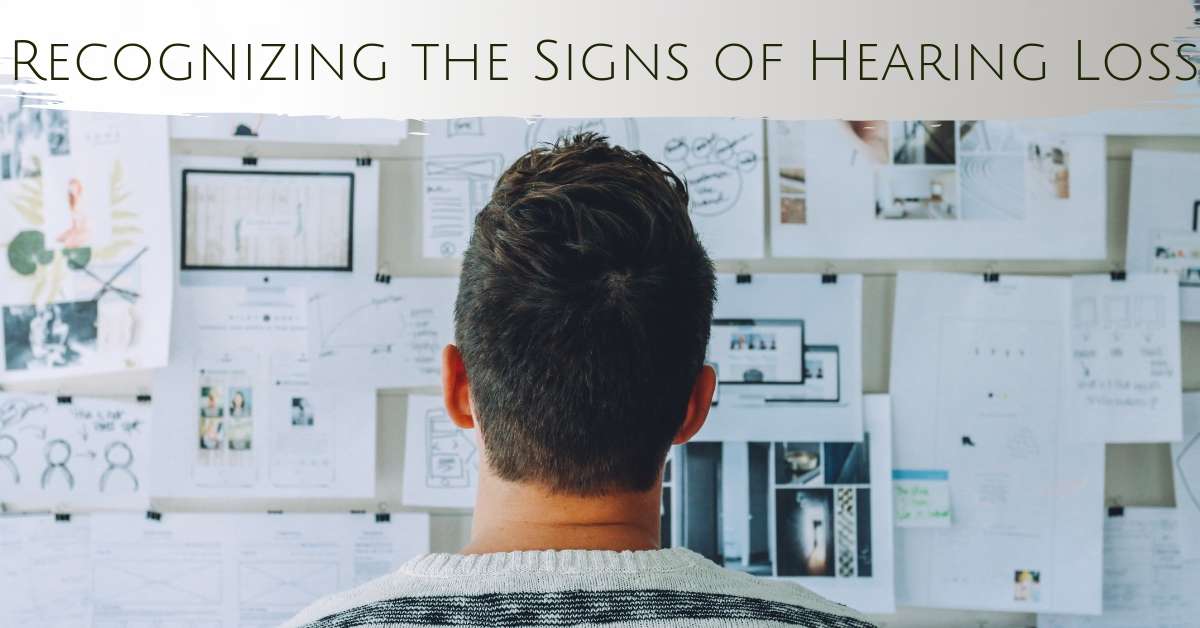- Are Cochlear Implants Worth It? - June 6, 2025
- Tips for Using Hearing Aids in Different Environments - May 27, 2025
- Rechargeable Hearing Aids vs. Battery-operated Hearing Aids - May 16, 2025
One of the most common medical conditions in the US (behind heart disease and arthritis), hearing loss is an invisible condition which often passes people by. The effects are gradual and uneven, with damage often taking years to show effects. And the first thing that is lost is the capacity to hear high frequency sounds, rather than an equal loss of frequency across the spectrum.
It can lead to all kinds of mental, social and physical health problems if left untreated. We should therefore we wary of the early signs of hearing loss in ourselves and those we care about. Here are some classic early signs of hearing loss.
Your ears are ringing
When people get that dreaded ringing in the ear, it usually goes away the next day. But for some, it sticks around. Called tinnitus, it is a sign of hearing loss usually associated with noise induced hearing loss. Although research is still being done on the processes which lead to tinnitus, we do know that it usually signals some damage to the inner ear.
You find it hard to locate the sound
Our brains usually accept sound from from both ears, known as binaural hearing. This gives us a fuller picture of the sound environment around us. But when our hearing is compromised, it affects our ears unevenly, throwing off the balanced hearing we are used to. We might not be able to locate where sound is coming from in our environment, which diminishes our spatial awareness. This could lead to safety concerns as we struggle to hear the direction of traffic or other potential hazards.
You like it loud
It might have been cool to listen to the TV or music at loud volumes when you were young, but not anymore. Hearing loss occurs initially in the higher registers which makes speech understanding difficult, which explains why you might find it tough to understand what the actors on TV are saying.
Everyone is mumbling
When did it become a trend for everyone around you to mumble? If you’ve ever thought this to yourself, consider whether it’s a product of your hearing loss. If you are the only person in your group who has to ask others to repeat themselves, then the problem may lie in your ability to hear.
You may think that you don’t have hearing loss because you can still hear the voices of people around you, but you just can’t understand them. This is because hearing loss is not simply the lowering of the volume of what you can hear. Damage to the hair cells which pick up sound first occur in the higher frequencies, reducing your ability to understand speech. You simply have trouble hearing the frequencies of their voice.
You no longer have fun when out with friends
You might have found it a slog to meet your friends out recently. The music is too loud and you can’t hear your friends. But this could be another sign of hearing loss. As our hearing declines, lower frequency sounds which make up the background noise of cafes and restaurants sound louder than the higher frequency speech sounds. This can make background music and the hum of conversations from other patrons appear louder than they really are.
In this environment, the brain works overtime to try and make sense of the gaps in conversation it has to deal with. You might get home exhausted, without having caught much of the conversations around you. This makes you less inclined to meet up with friends in the future.
Your spouse has mentioned something
Your family members are usually the first to notice your hearing loss. As hearing loss is so gradual, minute changes are sometimes difficult to detect by the person who has to deal with it, but it may be more obvious to the outsider. A common time family members notice is when the person with hearing loss watches TV at a higher volume than is normal.
Hearing Consultants, Inc.
If any of these signs resonate with you, come and talk to you at Hearing Consultants, Inc. Our hearing specialists will discuss your hearing health and can provide a comprehensive hearing test. Don’t sit on your hearing loss. Get it treated and you will reap the benefits for years to come.

